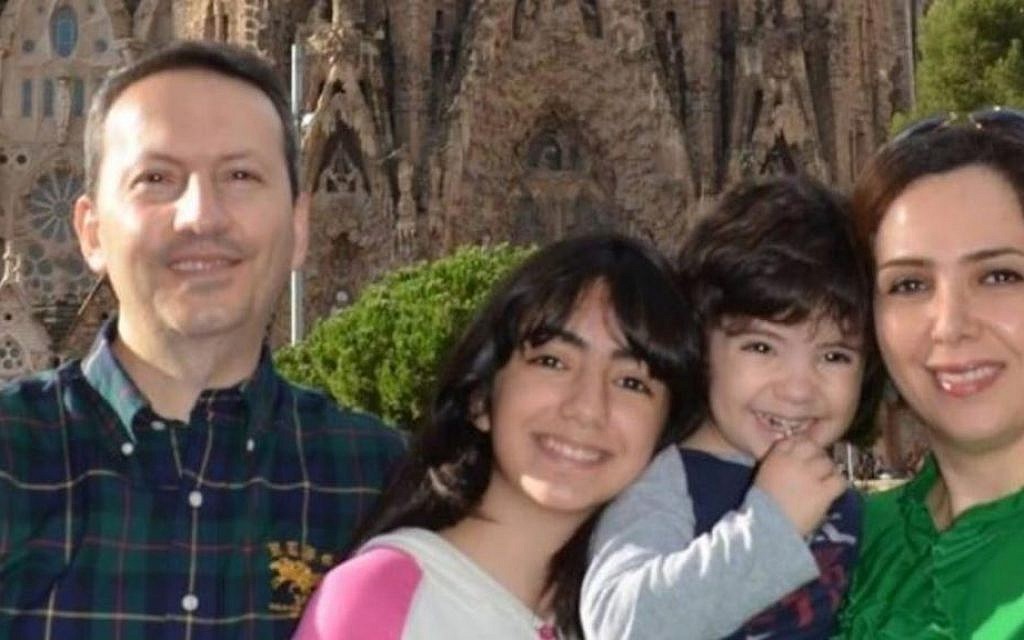GENEVA – Tehran must immediately release Iranian-Swedish academic Ahmadreza Djalali, who is allegedly in critical condition, after months of solitary confinement while awaiting execution, UN rights experts said on Thursday.
The eight independent experts, appointed by the United Nations but not speaking on their behalf, warned that the professor, who was arrested almost five years ago during a visit to Iran, was ‘almost dead’.
“The situation of Djalali is really appalling,” the group compiled from experts on the rights situation in Iran, extrajudicial executions, arbitrary detention and torture.
Get The Times of Israel Daily Edition by Email and Never Miss Our Top Stories Free Sign Up
“He is being held in jail for more than 100 days with the constant risk that his impending execution lies over his head,” they said in a statement.
“There is only one word to describe the serious physical and psychological abuse of Djalali, and that is torture.”

A flyer during a demonstration outside the Iranian embassy in Brussels for Ahmadreza Djalali, an Iranian academic who was detained in Tehran for almost a year and was reportedly sentenced to death for espionage, 13 February 2017. (Photo by DIRK WAEM / Belga / AFP)
Djalali, formerly based in Stockholm, where he worked at the Karolinska Institute, a medical university, was arrested in April 2016 during a visit to Iran.
He was subsequently convicted of passing information about two Iranian nuclear scientists to the Israeli Mossad intelligence agency that led to their assassination, and was sentenced to death in 2017 on a charge of espionage.
Djalali claimed he was punished for refusing to spy on Iran while working in Europe.
‘Shocked and anxious’
The experts insisted that the allegations against him were “completely unfounded and that he should be allowed to return to his family in Sweden as soon as possible.”
They had already sounded the alarm in November when he was suddenly taken into solitary confinement, expressing concern that his execution would be imminent.
They warned on Thursday that “the cruel and inhuman treatment by the authorities has given rise to the fear that, even if he is not executed, he may soon die in custody.”
According to the experts, prison officials shone bright lights in Djalali’s small cell 24 hours a day to deprive him.
At the same time, they warned: “medical problems prevented him from eating properly, which resulted in dramatic weight loss.”
Djalali was apparently in such a bad condition that he was struggling to speak, they said.
“We are shocked and saddened by (his) cruel abuse,” they added.

A meeting at the Iranian embassy in Brussels, in support of Ahmadreza Djalali, after the Supreme Court of Iran upheld the death sentence on 14 December 2017 to the Iranian-born Swedish resident and emergency medicine specialist. (AFP Photo / Belga / Virginie Lefour)
In their statement, the experts also stressed that his case was by no means an isolated incident in Iran, but rather indicative of the country’s “systematic use to punish and put prisoners under pressure, including making forced confessions.”
“We call on the Iranian government, parliament and the judiciary to end the use of solitary confinement as a form of punishment and to impose a moratorium on the death penalty as a first step towards that,” he said. said the experts.
